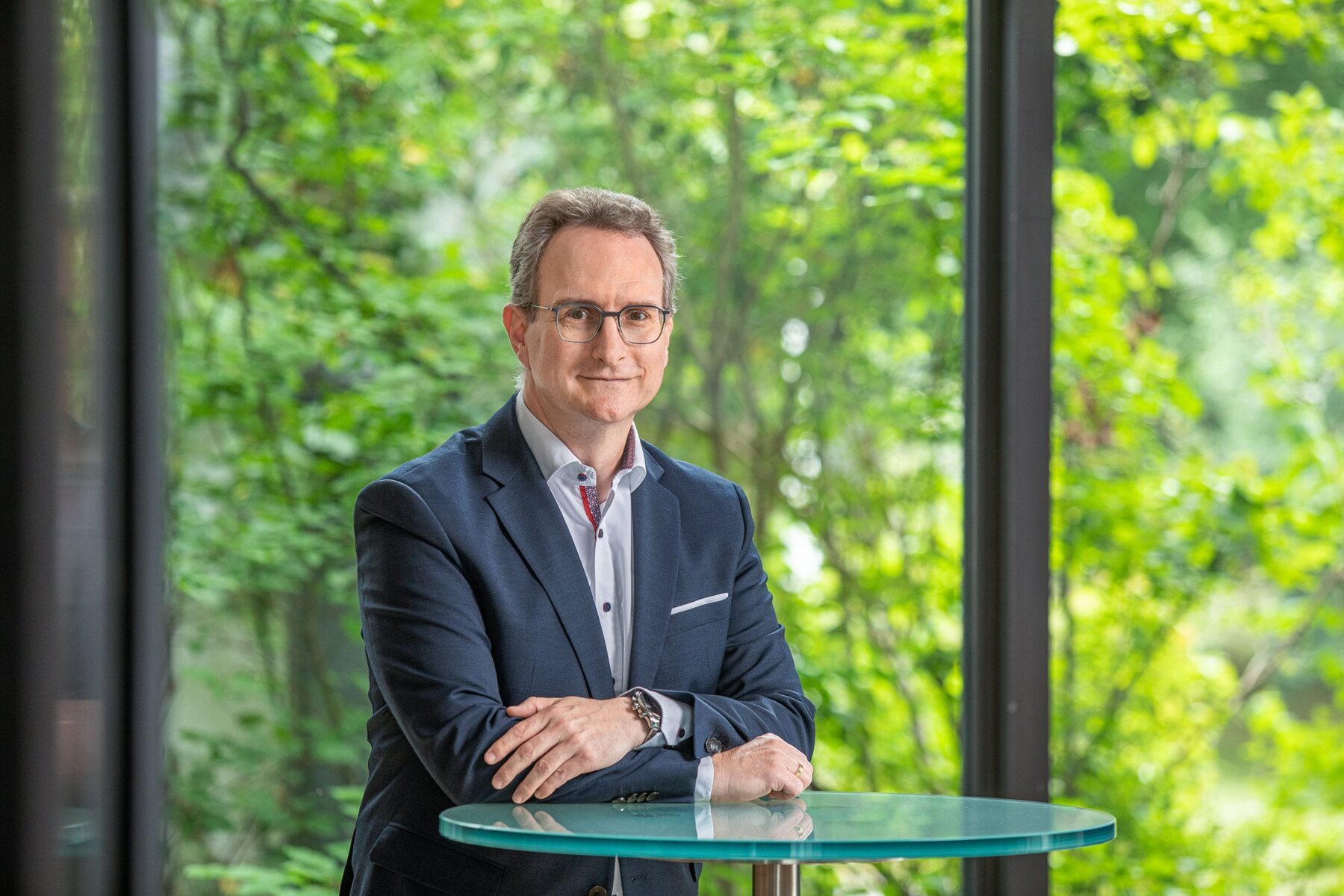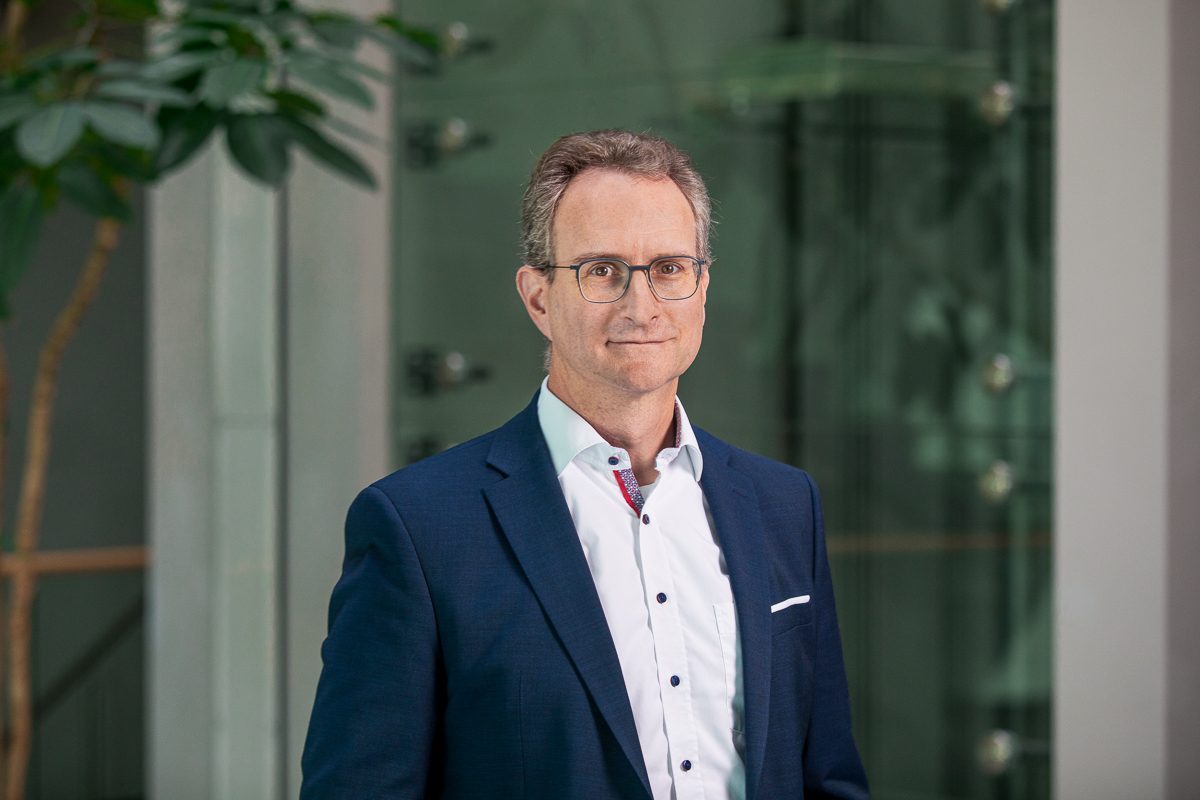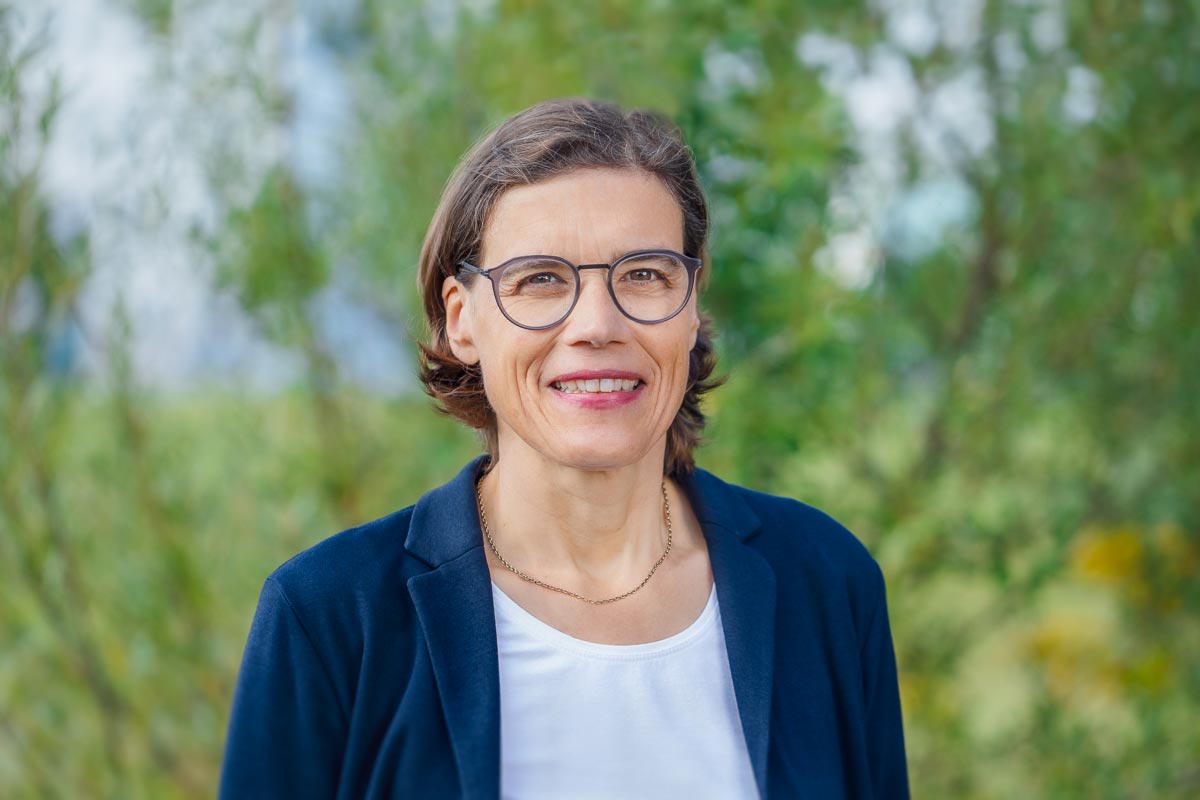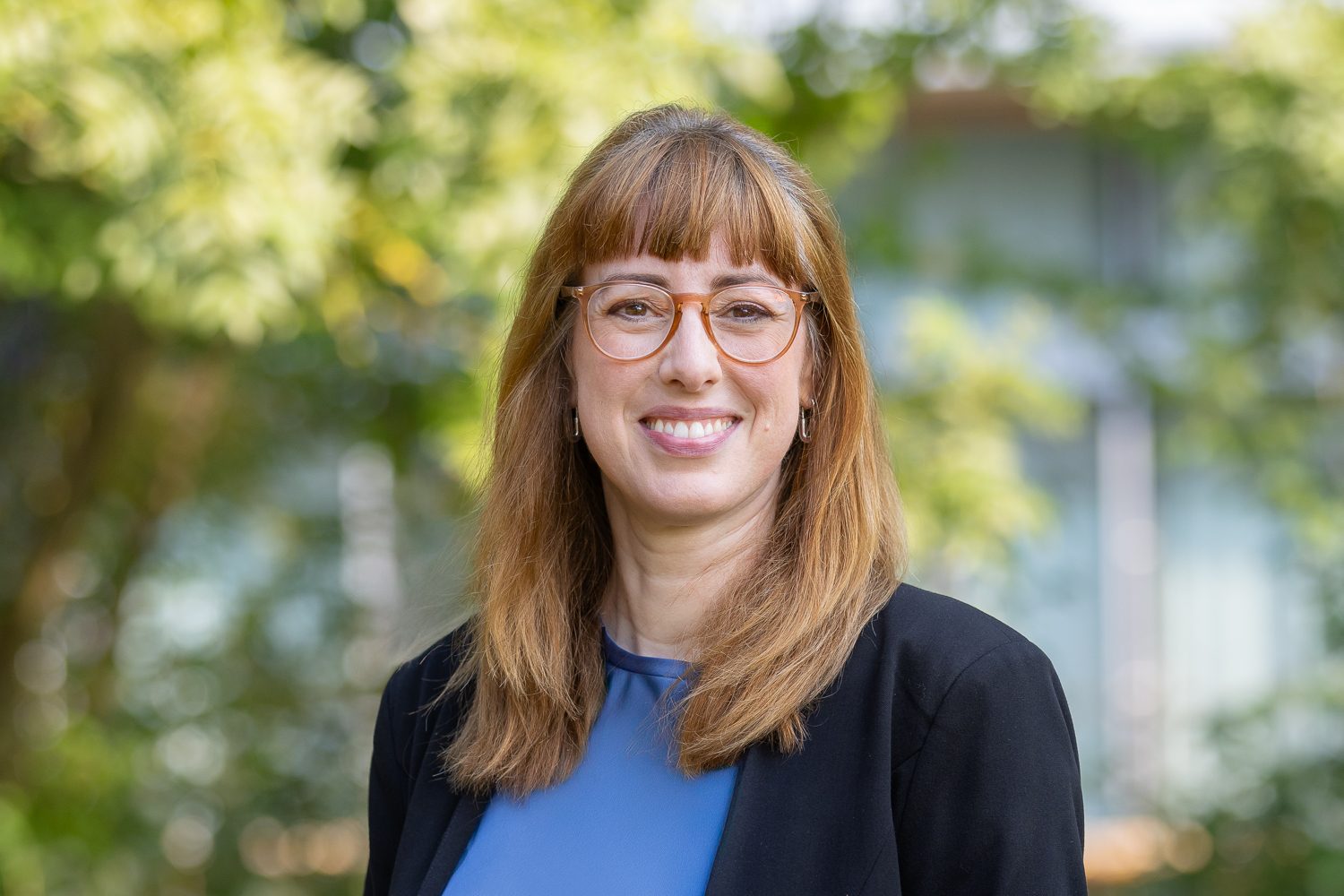![The granulate from which a material of the future is made: Alexander Böker presents a bag containing a new type of bioplastic that can replace petroleum-based polyethylene in the Fraunhofer IAP laboratory. ©Standortmanagement Golm GmbH/sevens[+]maltry](https://potsdam-sciencepark.de/wp-content/uploads/2024/09/potsdam_sciencepark-standortbotschafter-alexander_boeker-FraunhoferIAP_c©sevensmaltry1-1800x1200.jpg)
Science Park Ambassador Professor Alexander Böker – »Promotion to the Premier League«
Professor Dr Alexander Böker develops sustainable plastics at the Fraunhofer IAP that are based on natural raw materials and are recyclable or even biodegradable. He sees the Potsdam Science Park as a melting pot for innovative ideas.
»This little box, for example,« says Alexander Böker, turning a white plastic box with a matt surface in his hand. »Normally, items like this are made from petroleum-based plastic.« This means that crude oil is extracted from the earth, chemically converted and processed into plastic products. When they reach the end of their useful life, they are usually incinerated – which destroys raw materials and releases climate-damaging CO₂.
The white box in Alexander Böker’s hand points the way to a more sustainable future for plastics. »It is made from plant waste and can be used in a similar way to a box made from petroleum-based polyethylene,« says Böker. The bio-based plastic polybutylene succinate (PBS) from which it is moulded was developed at the Fraunhofer Institute for Applied Polymer Research (IAP) in the Potsdam Science Park in Golm, which Böker heads. Over a period of five years, a team of four scientists and two technicians optimised the material until it was technically on a par with conventional polyethylene – and also recyclable and biodegradable. A company in Saxony-Anhalt is already using the material to produce sustainable films for envelopes. It is one of numerous developments by around 90 researchers at the Fraunhofer IAP that are being used in industrial applications.

»We are endeavouring to replace fossil-based substances with bio-based substances that offer comparable quality, are inexpensive and can be recycled,« says Böker. »This way, we create natural plastics for the circular economy of the future.« At the same time, scientists at the Fraunhofer IAP are researching innovative recycling methods to return the millions of petroleum-based plastics in circulation to the raw material cycle without any loss of quality.
»We want to make the Potsdam Science Park shine through cooperation. Each institute is excellent in its own right, but it is only in the community that the spirit we need to drive innovation on a grand scale is created.«
The circular economy is one of the major topics of the future that is being driven forward at the Potsdam Science Park – from basic research to marketable innovations. To enable this transfer, the Fraunhofer IAP cooperates primarily with the University of Potsdam, where Alexander Böker heads the Chair of Polymer Materials and Polymer Technologies at the Institute of Chemistry, and the Bioanalytics and Bioprocesses branch of the Fraunhofer Institute for Cell Therapy and Immunology (IZI-BB) as well as the Max Planck Institute of Colloids and Interfaces, all of which are located in the Potsdam Science Park.
»We have very short distances here between the university, the non-university institutes and the companies, which promotes a lively exchange,« says Böker. This collaboration makes the Potsdam Science Park a melting pot for ideas and innovations. »Each institute is excellent in its own right, but the spirit we need to drive innovation on a grand scale only emerges in the community.«

Vita Professor Dr Alexander Böker
As Fraunhofer Institute Director and university professor, Alexander Böker has witnessed – and helped shape – the development of the science centre since 2015. He came to the Fraunhofer IAP in Golm from RWTH Aachen University as Institute Director. »Since the professional site management team began its work, the development of the Potsdam Science Park has progressed steadily – from the development of laboratory and office buildings to the establishment of companies and the merging of the Potsdam Science Park into an overall biotope in which not everyone is just cooking their own soup,« says Böker. »The Potsdam Science Park is increasingly becoming a byword for excellent research and innovative start-ups in the Berlin-Brandenburg region.«
»The location is a magnet for companies, especially in the biological and medical field. We want to ensure that materials companies also settle here and benefit from the exchange with science.«
Böker is particularly keen to transfer research knowledge to industry in order to contribute to more sustainable chemistry. »The Potsdam Science Park covers the entire value chain of innovations for this – from excellent basic research to applied research and transfer to industry,« he says. In order to continue the rapid development of recent years, further decisive support from the state of Brandenburg and the city of Potsdam is now needed. »Especially when promotion to the premier league is imminent, additional investment is required to boost performance.«
Meanwhile, further innovative materials are being developed at the Fraunhofer IAP. A bio-based carbon fibre, for example, which is made from cellulose and can replace petroleum-based carbon fibres to produce lightweight wind turbine blades or cladding for energy-efficient cars. Or the bioplastic PLA, which was further developed at the Fraunhofer IAP: The originally rather brittle PLA can now also be used for flexible film applications – such as sustainable, recyclable packaging films that are just as hard-wearing and flexible as conventional petroleum-based films. In 2023, a production plant for the new PLA material with a capacity of 2,000 tonnes per year was put into operation. A team of researchers at the institute has been awarded the prestigious Joseph von Fraunhofer Prize 2024 for the development of the innovative film material.
For Alexander Böker, these are good examples of how ideas can improve the world through excellence, exchange and determination. »We want to make the world of materials more sustainable and environmentally friendly with convincing solutions and show that plastics are not the problem, but an important part of the solution.“
The projects carried out by Standortmanagement Golm GmbH at Potsdam Science Park are funded by the European Union and the Federal State of Brandenburg.
Text: Mirco Lomoth | Photography: sevens[+]maltry
Contact

Agnes von Matuschka
Managing Director
agnes.matuschka@potsdam-sciencepark.de +49 331 237 351 135
Karen Esser
PR & Communications
karen.esser@potsdam-sciencepark.de + 49 331 237 351 103